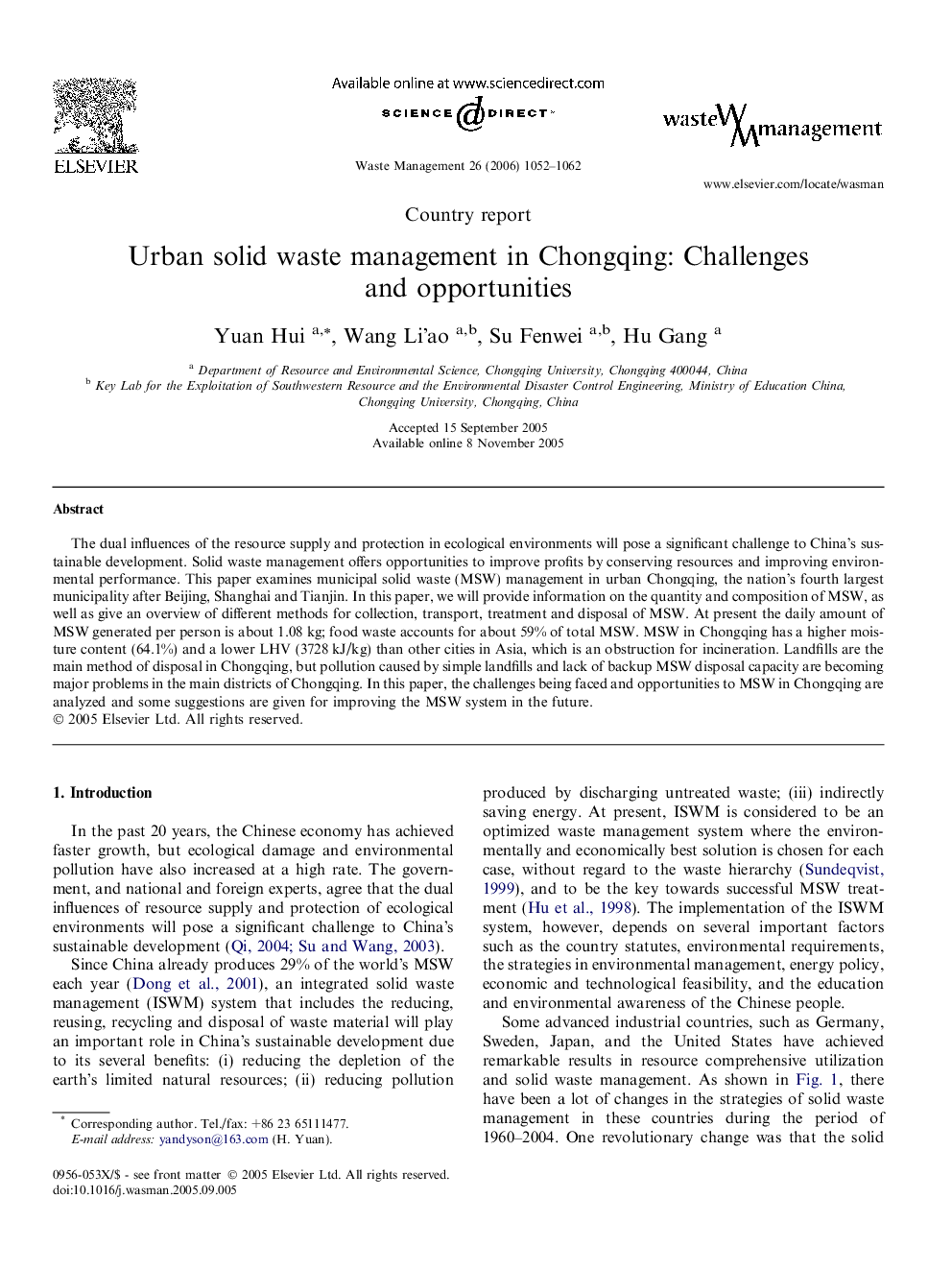| Article ID | Journal | Published Year | Pages | File Type |
|---|---|---|---|---|
| 4474253 | Waste Management | 2006 | 11 Pages |
The dual influences of the resource supply and protection in ecological environments will pose a significant challenge to China’s sustainable development. Solid waste management offers opportunities to improve profits by conserving resources and improving environmental performance. This paper examines municipal solid waste (MSW) management in urban Chongqing, the nation’s fourth largest municipality after Beijing, Shanghai and Tianjin. In this paper, we will provide information on the quantity and composition of MSW, as well as give an overview of different methods for collection, transport, treatment and disposal of MSW. At present the daily amount of MSW generated per person is about 1.08 kg; food waste accounts for about 59% of total MSW. MSW in Chongqing has a higher moisture content (64.1%) and a lower LHV (3728 kJ/kg) than other cities in Asia, which is an obstruction for incineration. Landfills are the main method of disposal in Chongqing, but pollution caused by simple landfills and lack of backup MSW disposal capacity are becoming major problems in the main districts of Chongqing. In this paper, the challenges being faced and opportunities to MSW in Chongqing are analyzed and some suggestions are given for improving the MSW system in the future.
